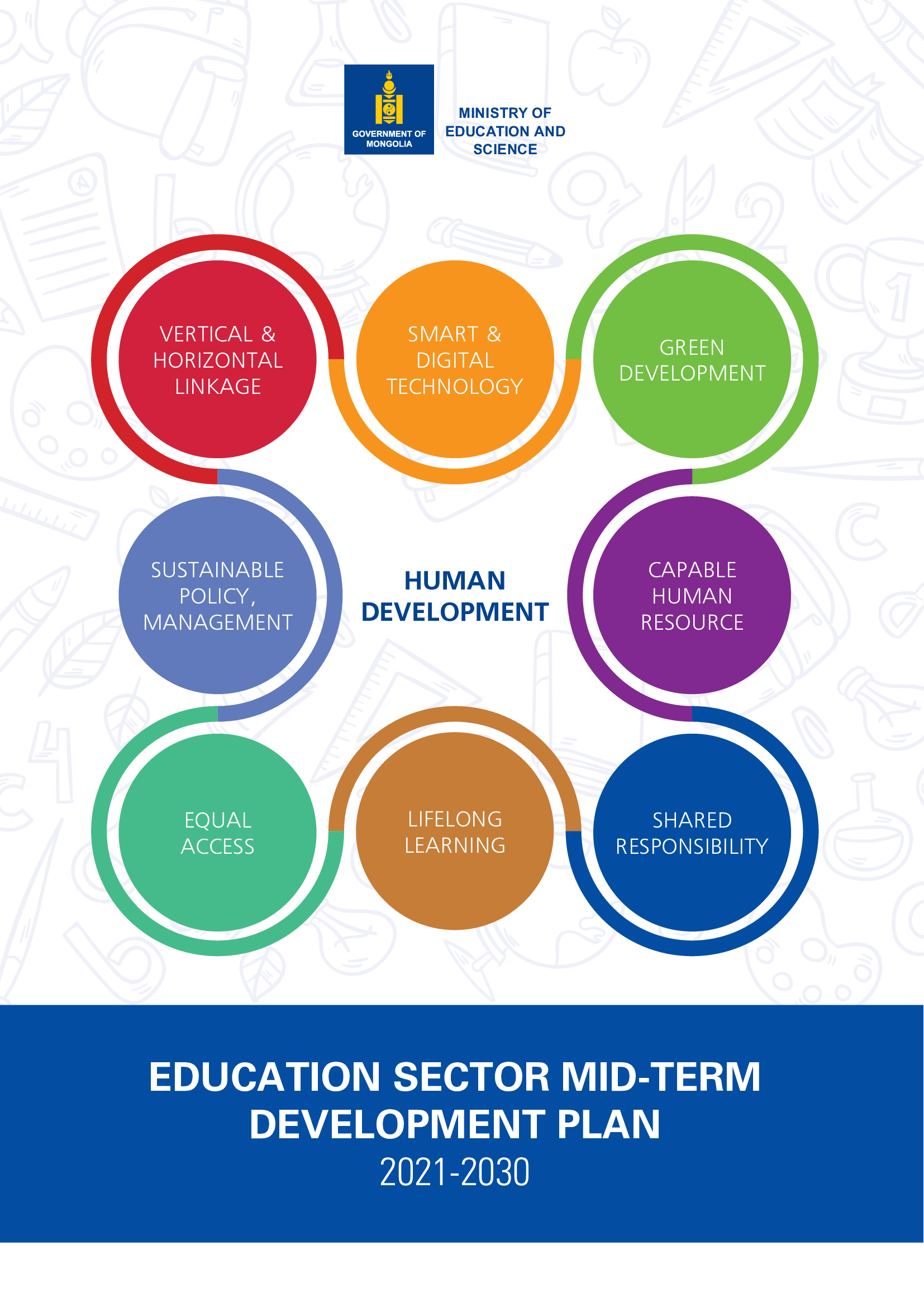The education sector in Mongolia achieved significant outcomes over the past years in modifying pre-primary, primary and secondary education curricula and vocational education and training, higher education and program content; revising student textbooks and learning materials, and establishing a favorable learning environment.
Positive changes were also made in the supply of qualified teachers and the capacity of kindergarten and school buildings.
But despite these significant outcomes, the sector still faces challenges such as:
- Enhancing the quality of education services
- Eliminating the urban-rural gap
- Establishing a child-friendly and accessible learning environment
- Strengthening cross-sector linkages and building partnerships with all stakeholders
- Improving governance and management of the education system.
To address these challenges, the Mongolia adopted the Education Sector Medium-Term Development Plan (2021-2030) in October 2020, to provide all citizens with equal access to education services, ensure vertical and horizontal links in education policies, disseminate smart and digital technology at all levels of education, and promote green development in the learning environment and materials.
Designed in conformity with Mongolia’s long-term development policy document - Vision 2050, and relevant laws, policies and regulations, the end goal of Mongolia’s education sector plan is “To ensure the holistic development of Mongolian citizens with competencies to thrive in the digital technology era as active participants in a knowledge-based society which enables life-long learning through quality, open, inclusive and flexible education services”.
The plan identifies policy priorities for each sub-sector to:
- Enhance quality and relevance of education system and services
- Increase equal access and inclusiveness in the services
- Improve the efficiency of education governance, management and administration.
With its focus on holistic human development, the plan is based on the following overarching principles:
- Provide equal opportunity to all citizens to access education services
- Strengthen and support shared responsibility and accountability among stakeholders
- Strengthen sustainable and professional management
- Ensure vertical and horizontal linkages of education policies
- Utilize smart and digital technology at all education levels
- Promote green development in learning environment and materials.


